
Klagenfurt: Austria's Hidden Gem by the Lake
Nestled along the tranquil shores of Lake Wörthersee, Klagenfurt is a charming city that offers a unique blend of natural beauty and rich cultural heritage. Founded in the 12th century, this Austrian city boasts a picturesque old town with well-preserved Renaissance buildings, narrow, winding streets, and quaint courtyards. The Lindwurm fountain, a symbol of the city, and the Neuer Platz with its vibrant atmosphere, are must-see spots for any visitor. Klagenfurt is not just about its historical charm. It is a hub for outdoor enthusiasts, offering a plethora of activities on and around Lake Wörthersee. From swimming and boating in the summer to ice skating in the winter, the lake is a year-round playground. The surrounding hills and forests provide excellent hiking and biking trails with breathtaking views of the landscape. The city is also a cultural center, home to several museums, galleries, and theaters. The Carinthian Museum of Modern Art and the Klagenfurt City Theatre are just a few examples of the rich artistic life that thrives here. Additionally, the city hosts numerous festivals throughout the year, including the renowned World Bodypainting Festival, which attracts artists and visitors from around the globe. Food lovers will delight in the local cuisine, which features a mix of Austrian, Italian, and Slovenian influences. From hearty Carinthian dumplings to delicious lake fish dishes, the culinary offerings are sure to tantalize your taste buds. The local markets, especially the Benedictine Market, offer a chance to sample fresh, regional produce and artisanal products. Klagenfurt is a city that caters to all interests, making it an ideal destination for a memorable Austrian getaway. Whether you're exploring its historical sites, enjoying outdoor activities, or indulging in its culinary delights, Klagenfurt promises a fulfilling and enriching experience.
Local tips in Klagenfurt
- Visit the Benedictine Market early in the morning for the freshest local produce and unique artisanal goods.
- Rent a bike to explore the scenic trails around Lake Wörthersee and enjoy breathtaking views.
- Check the local festival calendar to experience unique cultural events during your stay.
- Try the local specialty, 'Kasnudeln,' a type of Carinthian dumpling filled with cheese, at a traditional restaurant.
- Take a guided tour of the old town to learn about Klagenfurt's rich history and architectural treasures.
Klagenfurt: Austria's Hidden Gem by the Lake
Nestled along the tranquil shores of Lake Wörthersee, Klagenfurt is a charming city that offers a unique blend of natural beauty and rich cultural heritage. Founded in the 12th century, this Austrian city boasts a picturesque old town with well-preserved Renaissance buildings, narrow, winding streets, and quaint courtyards. The Lindwurm fountain, a symbol of the city, and the Neuer Platz with its vibrant atmosphere, are must-see spots for any visitor. Klagenfurt is not just about its historical charm. It is a hub for outdoor enthusiasts, offering a plethora of activities on and around Lake Wörthersee. From swimming and boating in the summer to ice skating in the winter, the lake is a year-round playground. The surrounding hills and forests provide excellent hiking and biking trails with breathtaking views of the landscape. The city is also a cultural center, home to several museums, galleries, and theaters. The Carinthian Museum of Modern Art and the Klagenfurt City Theatre are just a few examples of the rich artistic life that thrives here. Additionally, the city hosts numerous festivals throughout the year, including the renowned World Bodypainting Festival, which attracts artists and visitors from around the globe. Food lovers will delight in the local cuisine, which features a mix of Austrian, Italian, and Slovenian influences. From hearty Carinthian dumplings to delicious lake fish dishes, the culinary offerings are sure to tantalize your taste buds. The local markets, especially the Benedictine Market, offer a chance to sample fresh, regional produce and artisanal products. Klagenfurt is a city that caters to all interests, making it an ideal destination for a memorable Austrian getaway. Whether you're exploring its historical sites, enjoying outdoor activities, or indulging in its culinary delights, Klagenfurt promises a fulfilling and enriching experience.
When is the best time to go to Klagenfurt?
Iconic landmarks you can’t miss
Pyramidenkogel Tower
Discover unparalleled views and breathtaking landscapes at Pyramidenkogel Tower, a top observation deck in Austria's stunning Carinthia region.
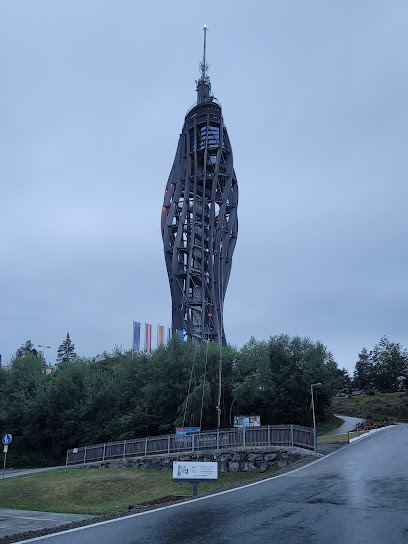
Minimundus
Discover the wonders of the world in miniature at Minimundus, Klagenfurt's enchanting theme park showcasing iconic landmarks.
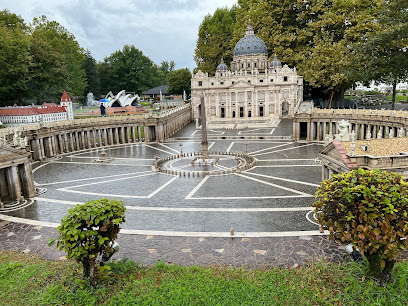
City-Arkaden Klagenfurt
Explore City-Arkaden Klagenfurt, where shopping, dining, and entertainment converge in a vibrant atmosphere that delights every visitor.
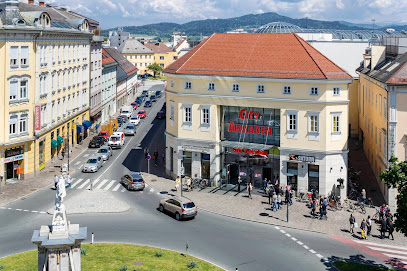
Lindwurmbrunnen
Discover the rich history and cultural significance of Lindwurmbrunnen, a must-see historical landmark in Klagenfurt am Wörthersee.
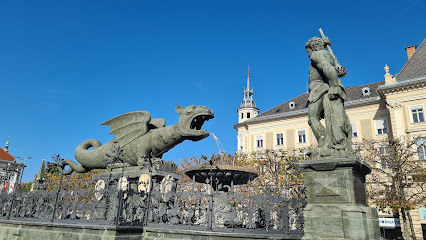
Lindwurm Fountain
Discover the enchanting Lindwurm Fountain, a historic landmark in Klagenfurt, where legends come to life amidst stunning architecture and vibrant culture.
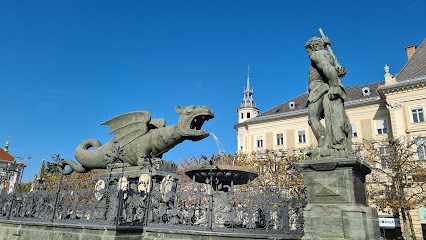
Stadtwerke Strandbad Klagenfurt
Discover the charming Stadtwerke Strandbad Klagenfurt, a beautiful outdoor bathing oasis on Lake Wörthersee with stunning views and delightful water activities.
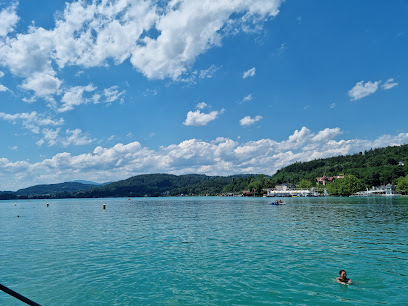
Europapark
Experience the excitement of Europapark in Klagenfurt, where thrilling attractions meet serene landscapes for the perfect family adventure.
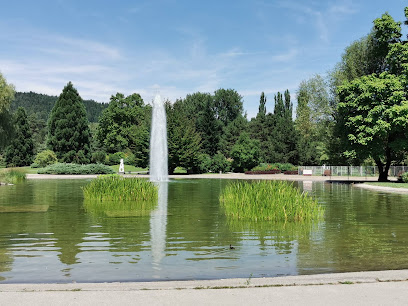
Reptilienzoo Happ
Explore the captivating world of reptiles at Reptilienzoo Happ in Klagenfurt am Wörthersee, a unique zoo experience for all ages.
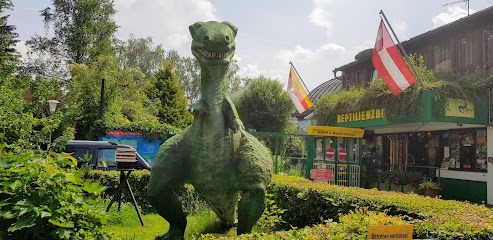
Austria
Experience the breathtaking landscapes, rich culture, and culinary delights of Austria, a European gem perfect for every traveler.
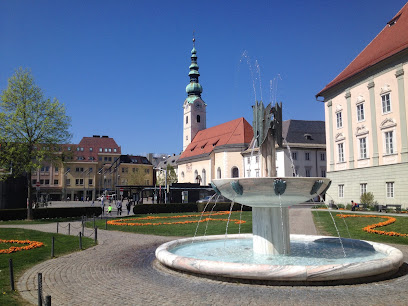
Maria Loreto Castle
Experience the beauty of Maria Loreto Castle, a romantic venue on the shores of Wörthersee, blending history, nature, and elegance for unforgettable moments.
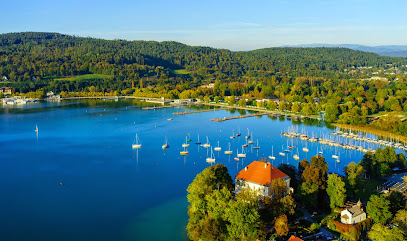
City Main Parish Church of St. Egid
Explore the stunning City Main Parish Church of St. Egid in Klagenfurt, a masterpiece of Gothic architecture and a cultural gem in Austria.
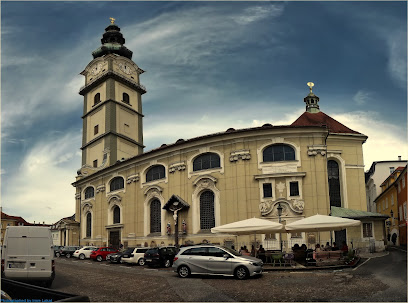
Wörtherseemandl fountain
Experience the enchanting Wörtherseemandl Fountain in Klagenfurt, a serene landmark surrounded by lush gardens and local culture.
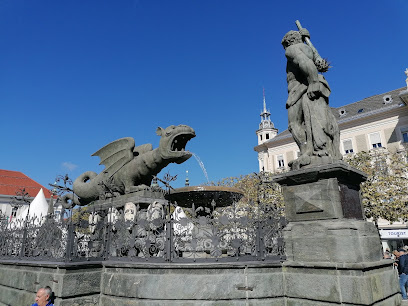
Ebenthaler Wasserfall
Explore the breathtaking Ebenthaler Wasserfall, a natural gem in the heart of Austria, offering stunning views and tranquil hiking trails for all adventurers.
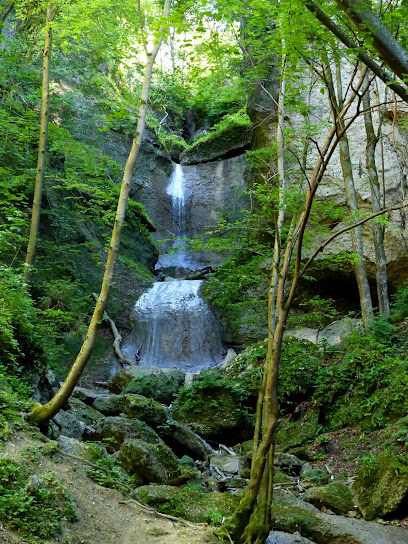
Kammerlichtspiele Klagenfurt
Explore the vibrant culture of Klagenfurt at Kammerlichtspiele, a premier performing arts theater showcasing local and international talent.
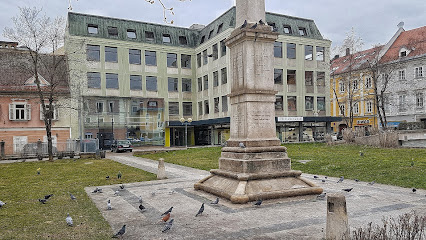
Kreuzberglkirche
Discover the serene beauty and architectural splendor of Kreuzberglkirche in Klagenfurt, a must-visit Catholic church and cultural landmark.
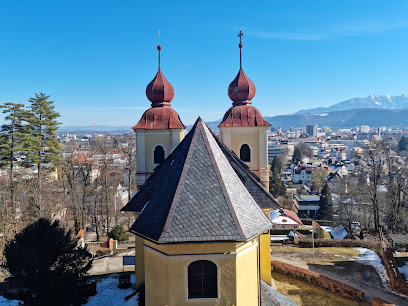
Unmissable attractions to see
Bled Castle
Discover the enchanting Bled Castle, a historic fortress with stunning views of Lake Bled and rich cultural exhibits that capture Slovenia's heritage.
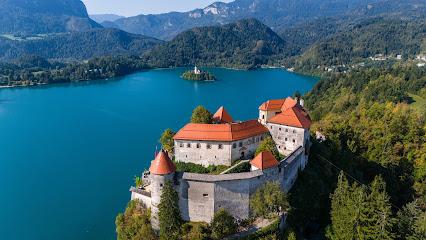
Soteska Vintgar
Immerse yourself in the breathtaking beauty of Soteska Vintgar, Slovenia's stunning gorge with crystal-clear waters and serene nature trails.
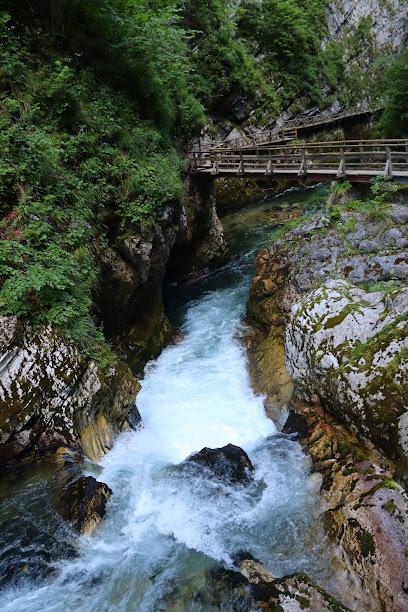
Minimundus
Discover Minimundus, the enchanting miniature park in Klagenfurt am Wörthersee, showcasing iconic landmarks from around the world in stunning detail.
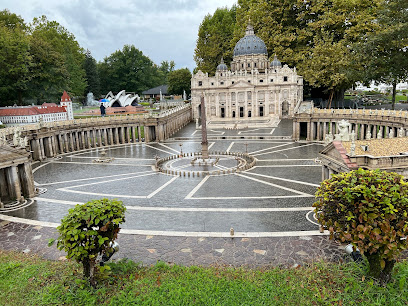
Lake Bled
Discover the stunning beauty and rich history of Lake Bled, Slovenia, a picturesque alpine destination perfect for relaxation and adventure.
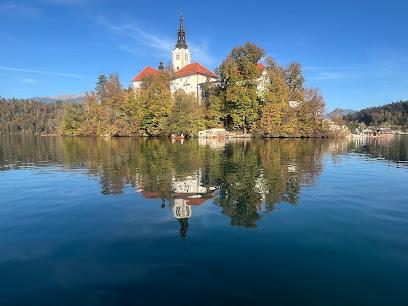
Planica Nordic Centre
Explore the exhilarating winter sports and breathtaking scenery at Planica Nordic Centre, a top destination in Slovenia's Julian Alps.
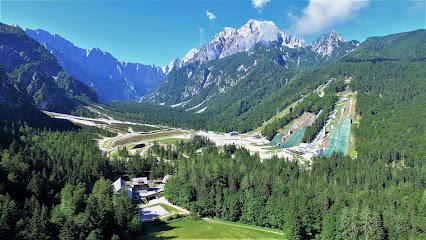
Waterfall Peričnik
Experience the breathtaking beauty of Waterfall Peričnik in Mojstrana, a stunning nature preserve and tourist attraction in Slovenia.
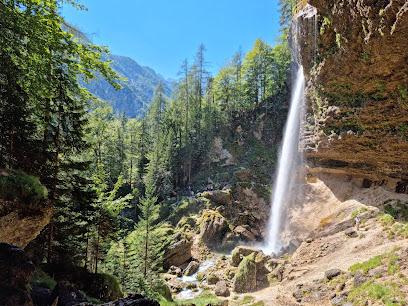
Logar Valley
Explore Logar Valley, Slovenia's picturesque natural park, renowned for its stunning landscapes, outdoor adventures, and rich cultural heritage.
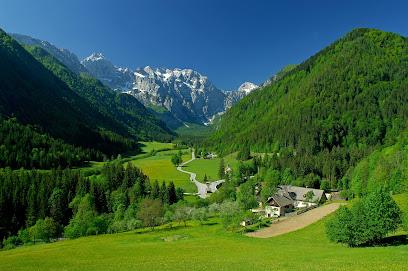
Zelenci Nature Reserve
Explore the stunning emerald lakes and serene landscapes of Zelenci Nature Reserve, a nature lover's paradise in the Julian Alps of Slovenia.
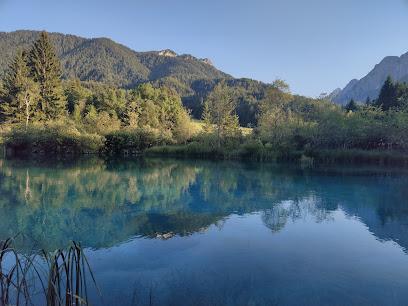
Stadtwerke Strandbad Klagenfurt
Experience leisure and fun at Stadtwerke Strandbad Klagenfurt, an outdoor paradise on the stunning Wörthersee, perfect for family and friends.
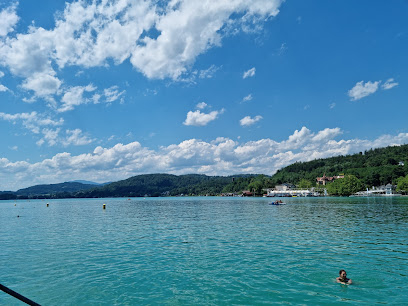
Europapark
Discover the ultimate thrill at Europapark in Klagenfurt am Wörthersee, where adventure meets relaxation in a stunning park setting.
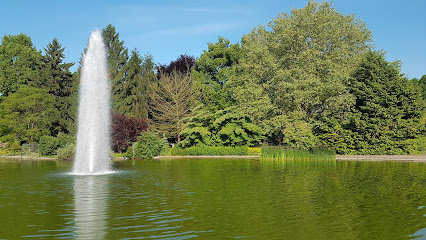
Neuer Platz
Experience the historical and cultural heart of Klagenfurt at Neuer Platz, a vibrant square with stunning architecture and delightful local cuisine.
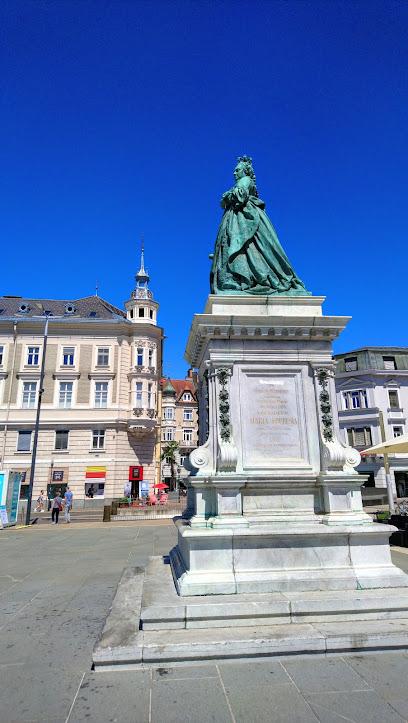
Neuer Platz
Discover the vibrant Neuer Platz in Klagenfurt, Austria – a cultural hub featuring stunning architecture, lively cafes, and the iconic Lindwurm statue.
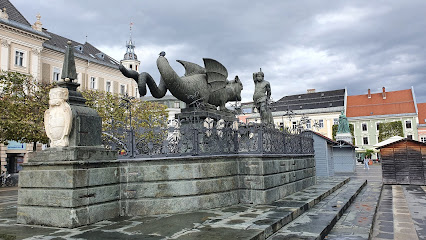
The Heart of Bled
Experience the serene beauty and rich culture of Lake Bled, a stunning destination in Slovenia that captivates every visitor.
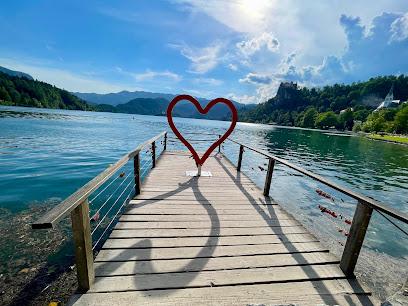
Reptilienzoo Happ
Explore the incredible world of reptiles and amphibians at Reptilienzoo Happ in Klagenfurt am Wörthersee, a family-friendly attraction featuring diverse species in natural habitats.
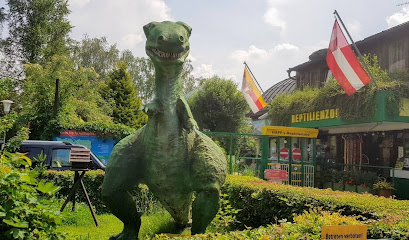
Church of the Assumption of the Blessed Virgin Mary
Discover the stunning Church of the Assumption on Bled Island, a cultural gem in Slovenia surrounded by breathtaking natural beauty.
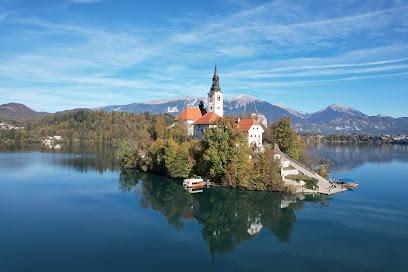
Essential places to dine
Gasthaus im Landhaushof
Experience authentic Austrian cuisine at Gasthaus im Landhaushof in Klagenfurt am Wörthersee – where tradition meets flavor in every dish.
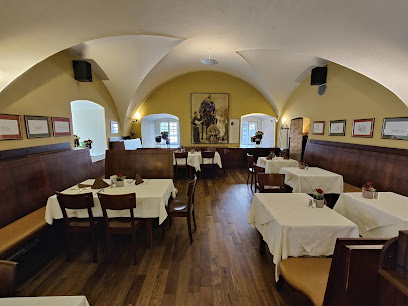
Restaurant Maria Loretto
Experience the perfect blend of breathtaking lake views and exquisite local cuisine at Restaurant Maria Loretto near Wörthersee.
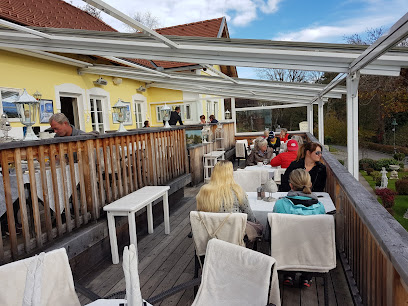
Frankie's Restaurant Bar & Café
Experience delectable grilled cuisine at Frankie's Restaurant Bar & Café in Klagenfurt am Wörthersee - where flavor meets ambiance.
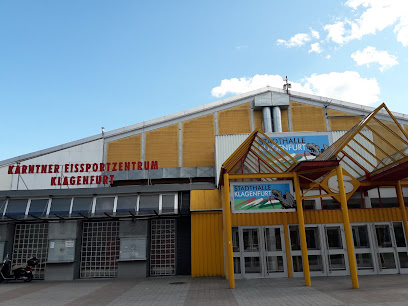
Felsenkeller
Discover Felsenkeller in Klagenfurt - where local flavors meet warm hospitality amidst stunning landscapes.
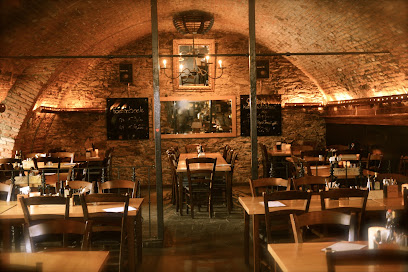
La Bottega
Indulge in authentic Italian flavors at La Bottega in Klagenfurt am Wörthersee – where tradition meets culinary excellence.
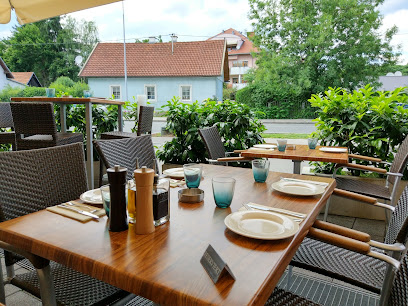
Ciao Ciao City
Experience authentic Italian cuisine at Ciao Ciao City in Innere Stadt - where every dish tells a story.
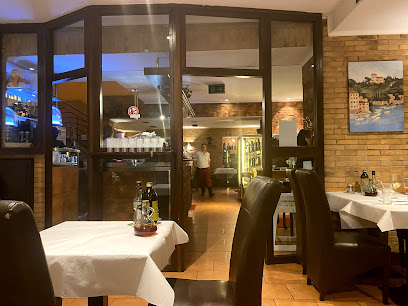
151 Restaurant & Bar
Indulge in gourmet dishes and vibrant nightlife at 151 Restaurant & Bar in Klagenfurt am Wörthersee – a true culinary gem.
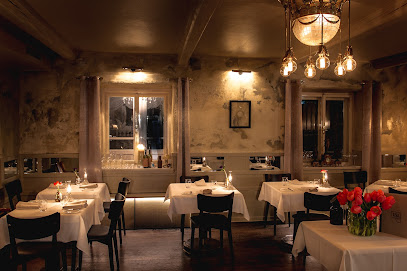
Schweizerhaus Klagenfurt
Discover Schweizerhaus Klagenfurt: where traditional Austrian flavors meet cozy accommodations amidst stunning landscapes.
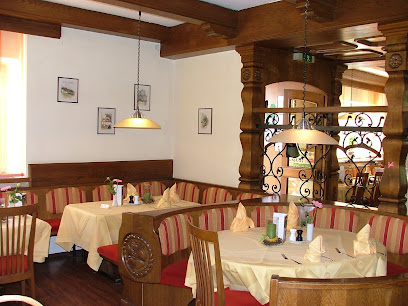
KYO KITCHEN & BAR
Discover the essence of Asian cuisine at KYO KITCHEN & BAR - where tradition meets innovation in every dish.
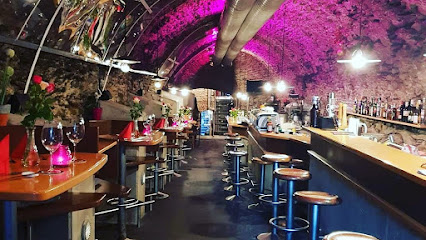
magdas Lokal
Savor delicious local and international dishes at magdas Lokal while supporting refugee integration in Austria.
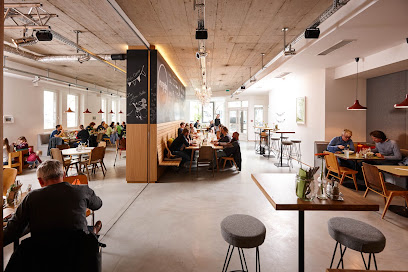
Ricardo
Experience authentic Mediterranean tapas at Ricardo in Klagenfurt - where every bite tells a story of flavor and tradition.
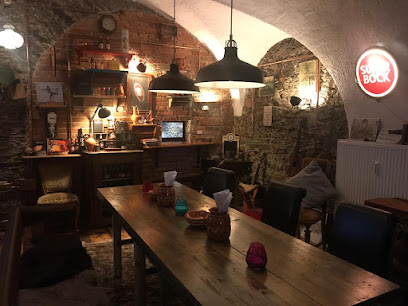
princS Pasta & Bar
Experience the rich flavors of Italy at PrincS Pasta & Bar in Innere Stadt - A must-visit for food lovers seeking authentic cuisine.
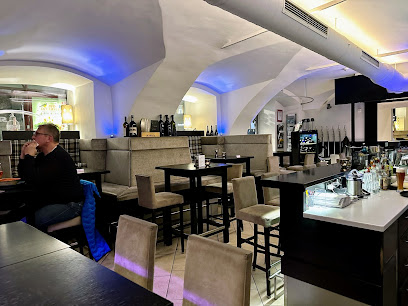
Sunset Klagenfurt
Dine with breathtaking views at Sunset Klagenfurt – where exquisite cuisine meets the stunning backdrop of Lake Wörthersee.
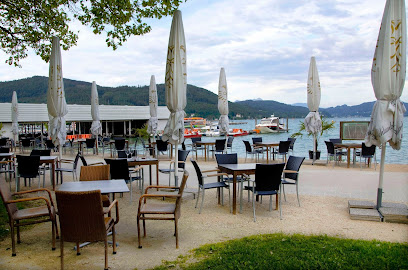
Restaurant 7. Himmel
Discover exquisite cuisine with breathtaking views at Restaurant 7. Himmel in Klagenfurt am Wörthersee - an unforgettable dining experience awaits you.
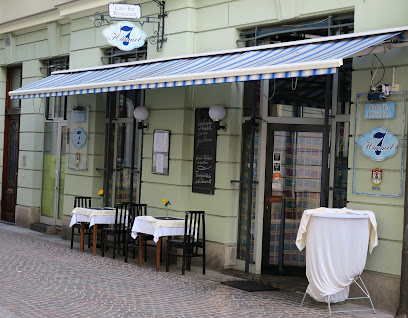
Okto Dining
Experience the best of sushi and brunch at Okto Dining in Klagenfurt am Wörthersee – where flavors meet creativity!
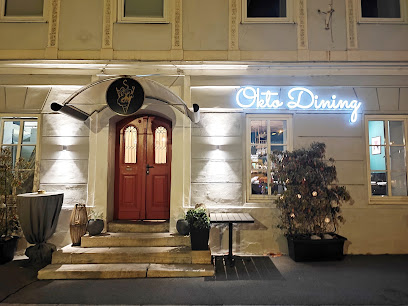
Markets, malls and hidden boutiques
City-Arkaden Klagenfurt
Discover City-Arkaden Klagenfurt, a premier shopping destination offering fashion, dining, and unique finds in the heart of Austria.
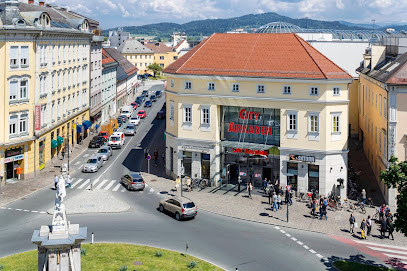
SÜDPARK Shopping Center Klagenfurt
Explore SÜDPARK Shopping Center in Klagenfurt for a unique shopping experience filled with diverse stores and delicious dining options.
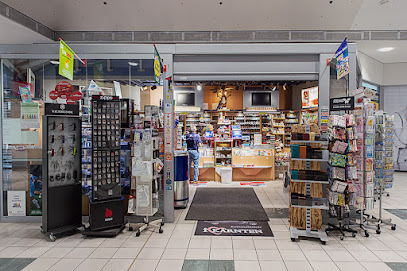
TK Maxx
Experience fashion at unbeatable prices at TK Maxx in Klagenfurt – a shopper's paradise with an ever-changing selection of styles and home goods.
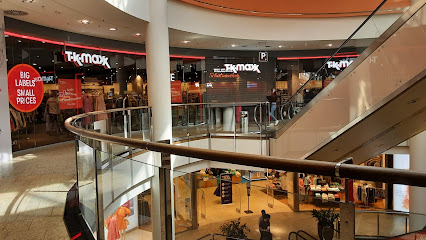
Nespresso Boutique Klagenfurt
Discover the art of coffee at Nespresso Boutique Klagenfurt, a must-visit for coffee enthusiasts and curious newcomers alike.
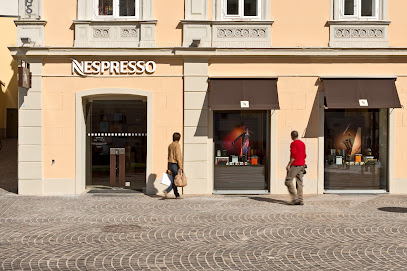
Müller
Explore Müller in Klagenfurt: your go-to destination for health, beauty, toys, and unique finds in one vibrant store.
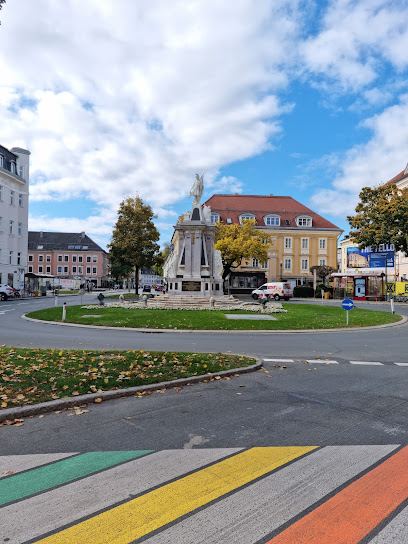
Elbenwald
Explore Elbenwald in Klagenfurt, a magical gift shop filled with unique clothing, toys, and pop culture treasures for all ages.
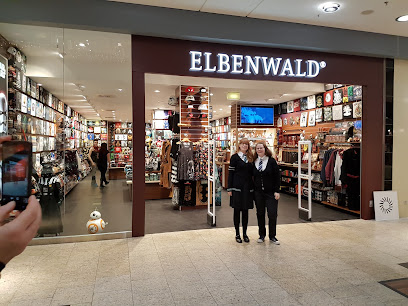
Nanu-Nana
Explore Nanu-Nana in Klagenfurt for unique gifts, charming crafts, and delightful home goods that capture the local spirit.
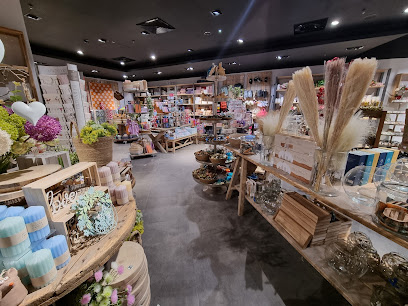
Klagenfurt Outlets
Discover fabulous deals at Klagenfurt Outlets, your ultimate shopping destination in Klagenfurt am Wörthersee, offering top brands at unbeatable prices.
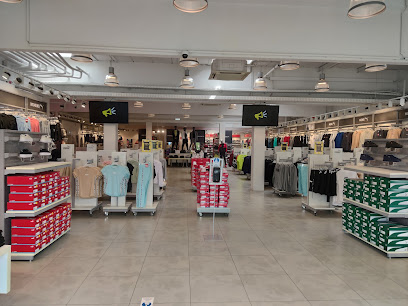
Tommy Hilfiger
Discover the elegance and style of Tommy Hilfiger in Klagenfurt am Wörthersee, where fashion meets contemporary American design.
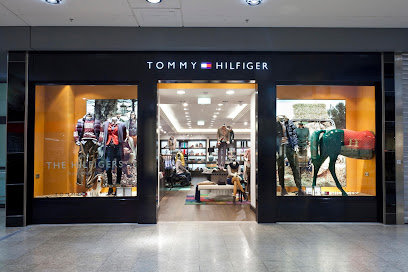
Swarovski Shop Klagenfurt
Experience the brilliance of Swarovski at Klagenfurt's premier jewelry destination, showcasing luxury and timeless elegance in every piece.
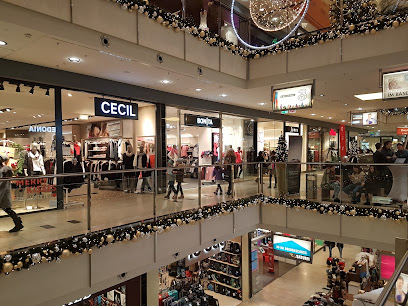
Esprit
Explore the trendy Esprit clothing store in Klagenfurt for stylish fashion choices and eco-friendly options in a vibrant shopping atmosphere.
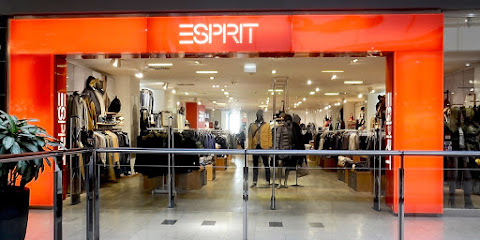
Boutique Extravagant
Explore a luxurious clothing haven at Boutique Extravagant in Klagenfurt, featuring exquisite fashion and unique accessories for every style.
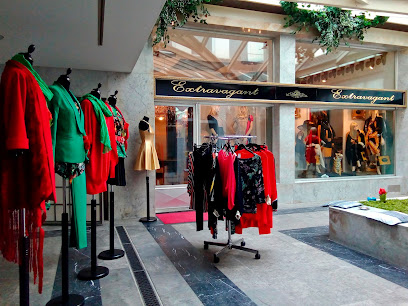
TOM TAILOR Store
Discover the latest fashion trends and stylish apparel at TOM TAILOR Store in Klagenfurt am Wörthersee, your go-to destination for unique clothing and accessories.
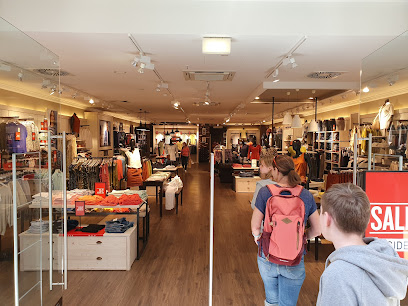
JACK & JONES
Discover the latest in men's fashion at JACK & JONES, Klagenfurt's premier destination for stylish clothing and accessories.
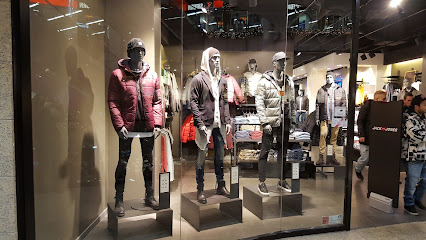
DEPOT
Explore DEPOT Klagenfurt for unique gifts, stylish furniture, and home decor that will inspire your creativity and delight your senses.
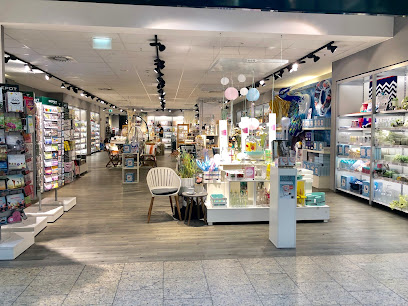
Essential bars & hidden hideouts
GIG Bar & Cafe
Experience the lively atmosphere and diverse drink selection at GIG Bar & Cafe, the heart of Klagenfurt's nightlife.
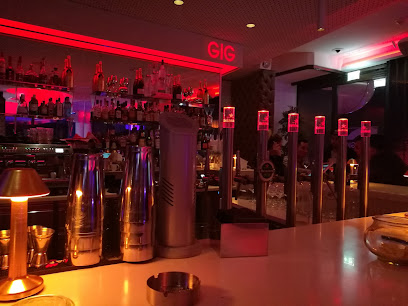
McMullens Klagenfurt
Unwind at McMullens Klagenfurt, the quintessential Irish pub offering hearty meals, vibrant drinks, and a lively atmosphere in the heart of Austria.
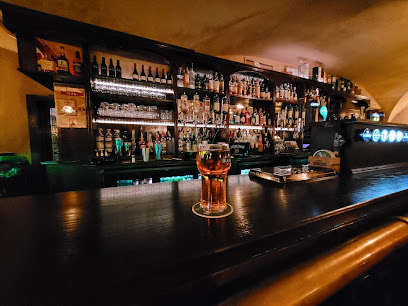
Bar 19null7
Experience the vibrant nightlife of Klagenfurt at Bar 19null7, a stylish rooftop bar with stunning views and a creative cocktail menu.
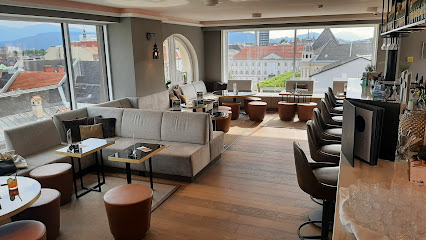
Tavernakel
Discover Tavernakel in Klagenfurt am Wörthersee for a delightful bar experience with a local touch, extensive drink selection, and vibrant atmosphere.
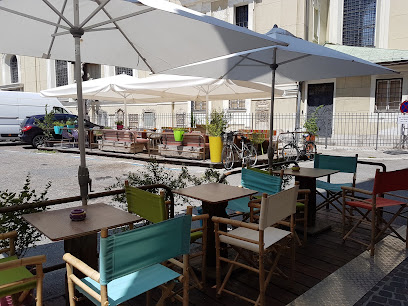
GATES Lifestyle Bar - good vibes since 1996
Experience the vibrant nightlife at GATES Lifestyle Bar in Klagenfurt - a perfect blend of great drinks and unforgettable vibes since 1996.
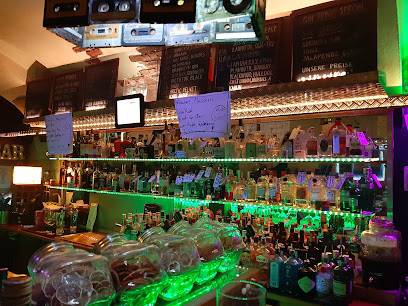
Das Wohnzimmer - Café, Bar, Musik
Experience the vibrant atmosphere of Das Wohnzimmer, Klagenfurt's cozy café and bar offering cocktails, live music, and a welcoming ambiance.
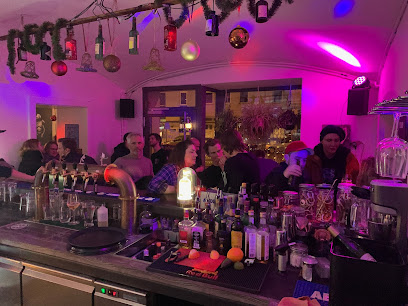
Speki Bar
Discover the lively nightlife of Vienna at Speki Bar, a vibrant spot for cocktails, music, and unforgettable memories in the heart of Innere Stadt.
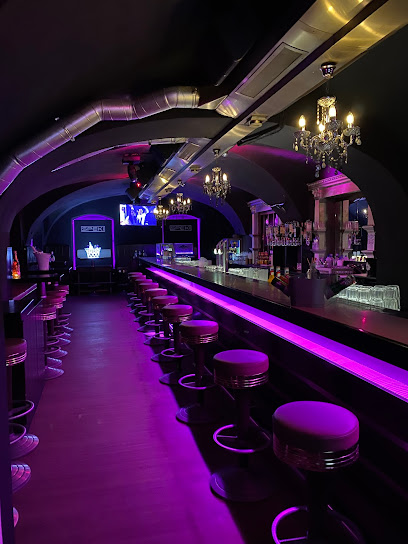
Cafe Bar FASSL
Experience the lively spirit of Klagenfurt at Cafe Bar FASSL, a delightful blend of café culture and vibrant nightlife.
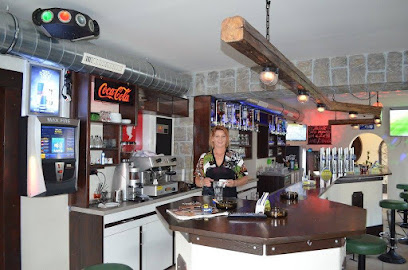
Pub Checkpoint Charlie - Rock & Metal Bar
Experience electrifying rock & metal vibes at Pub Checkpoint Charlie in Innere Stadt, where music and atmosphere unite for an unforgettable night.
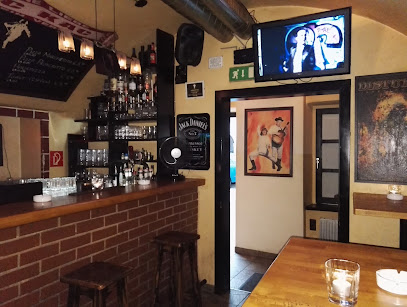
Molly Malone
Experience the vibrant spirit of Ireland at Molly Malone, an authentic Irish pub in the heart of Innere Stadt, perfect for tourists seeking camaraderie and great cuisine.
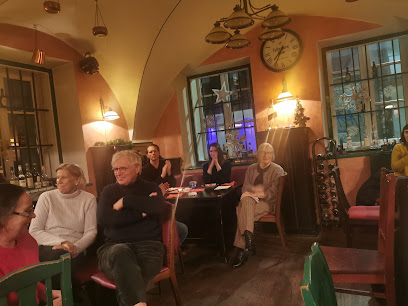
Funky Bar Klagenfurt
Discover the heart of Klagenfurt's nightlife at Funky Bar, where eclectic drinks and vibrant music create an unforgettable experience.
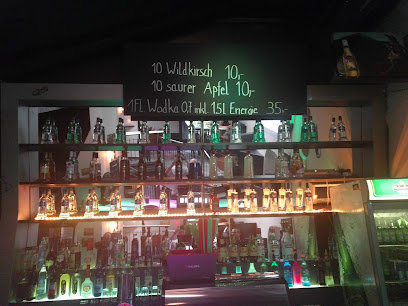
Live Time Music Bar
Discover Klagenfurt's nightlife at Live Time Music Bar, where live music, affordable drinks, and a vibrant atmosphere await you.
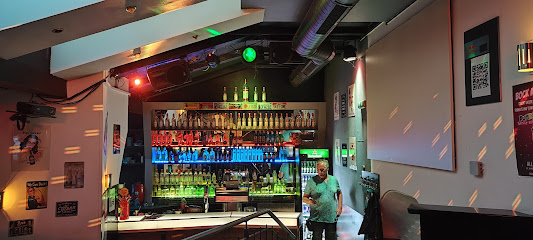
Flamingo Bar
Discover the vibrant nightlife of Klagenfurt at Flamingo Bar, where great drinks and an inviting atmosphere await every visitor.
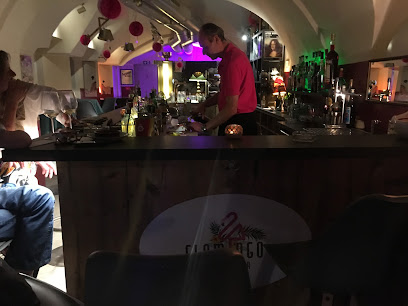
Momos Pub
Discover the lively atmosphere and local brews at Momos Pub in Klagenfurt am Wörthersee, your go-to spot for a fun night out.
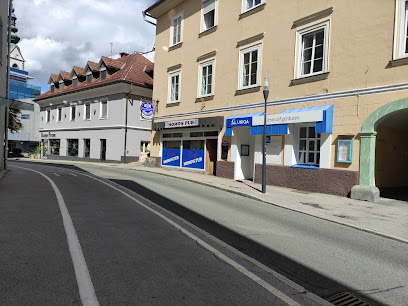
Local Phrases
-
- HelloServus
[Ser-voos] - GoodbyeAuf Wiedersehen
[Owf Vee-der-zay-en] - YesJa
[Yah] - NoNein
[Nine] - Please/You're welcomeBitte
[Bit-teh] - Thank youDanke
[Dahn-keh] - Excuse me/SorryEntschuldigung
[Ent-shool-dee-gung] - How are you?Wie geht es dir?
[Vee gayt es deer?] - Fine. And you?Gut. Und dir?
[Goot. Oond deer?] - Do you speak English?Sprechen Sie Englisch?
[Shpre-khen Zee Eng-leesh?] - I don't understandIch verstehe nicht
[Ikh fer-shtay-eh nikht]
- HelloServus
-
- I'd like to see the menu, pleaseIch hätte gerne die Speisekarte, bitte
[Ikh hetteh geh-ren-eh dee Shpy-seh-kar-teh, bit-teh] - I don't eat meatIch esse kein Fleisch
[Ikh ess-eh kine Fly-sh] - Cheers!Prost!
[Prohst] - I would like to pay, pleaseIch möchte bitte zahlen
[Ikh merk-teh bit-teh tsah-len]
- I'd like to see the menu, pleaseIch hätte gerne die Speisekarte, bitte
-
- Help!Hilfe!
[Hil-feh] - Go away!Geh weg!
[Gay vehg] - Call the Police!Rufen Sie die Polizei!
[Roo-fen Zee dee Po-lee-zye] - Call a doctor!Rufen Sie einen Arzt!
[Roo-fen Zee iyn-en Ahr-tst] - I'm lostIch habe mich verirrt
[Ikh hah-buh meekh fer-eert] - I'm illIch bin krank
[Ikh been krank]
- Help!Hilfe!
-
- I'd like to buy...Ich möchte ... kaufen
[Ikh merk-teh ... kow-fen] - I'm just lookingIch schaue nur
[Ikh sh-ow-eh noor] - How much is it?Wie viel kostet das?
[Vee feel kos-tet duss] - That's too expensiveDas ist zu teuer
[Dass ist tsoy toy-er] - Can you lower the price?Können Sie den Preis senken?
[Kern-en Zee den Prize senk-en]
- I'd like to buy...Ich möchte ... kaufen
-
- What time is it?Wie spät ist es?
[Vee shpet ist es] - It's one o'clockEs ist ein Uhr
[Es ist ine oor] - Half past (10)Halb (zehn) Uhr
[Halb (tsane) oor] - MorningMorgen
[Morg-en] - AfternoonNachmittag
[Nakh-mee-tahg] - EveningAbend
[Ah-bend] - YesterdayGestern
[Ges-tern] - TodayHeute
[Hoy-teh] - TomorrowMorgen
[Morg-en] - 1Eins
[Ines] - 2Zwei
[Tzvey] - 3Drei
[Dry] - 4Vier
[Feer] - 5Fünf
[Foonf] - 6Sechs
[Zex] - 7Sieben
[Zee-ben] - 8Acht
[Akt] - 9Neun
[Noy-n] - 10Zehn
[Tzane]
- What time is it?Wie spät ist es?
-
- Where's a/the...?Wo ist ein/der...?
[Vo ist ine/der...?] - What's the address?Was ist die Adresse?
[Vas ist dee Ah-dres-seh] - Can you show me (on the map)?Können Sie mir das zeigen (auf der Karte)?
[Kern-en Zee meer dass tsay-gen (owf dare Kar-teh)?] - When's the next (bus)?Wann kommt der nächste (Bus)?
[Vann kommt dare nekhs-teh (Boos)?] - A ticket (to ....)Eine Fahrkarte (nach ....)
[Ine-eh Far-kar-teh (nakh ....)]
- Where's a/the...?Wo ist ein/der...?
History of Klagenfurt
-
Klagenfurt was founded in the late 12th century by the Duke of Carinthia, Herman of Spanheim. Initially, it was a small market town strategically located at a crossing point of trade routes. The city was officially documented for the first time in 1192.
-
According to local legend, Klagenfurt was terrorized by a dragon-like creature called the Lindwurm. The beast was eventually slain by brave knights, and a statue commemorating this event stands in the city's central square, Neuer Platz. The Lindwurm has become a symbol of Klagenfurt and its resilience.
-
In 1514, a catastrophic fire destroyed much of Klagenfurt. The city's reconstruction was led by the Estates of Carinthia, who took over governance from the Habsburgs. This event marked the beginning of a new era of prosperity and architectural development.
-
Following the Great Fire, Klagenfurt was rebuilt in the Renaissance style. The city's layout was redesigned, and many new buildings were constructed, including the Landhaus, which became the seat of the Carinthian Estates. This period also saw the establishment of the city's fortifications and a new town hall.
-
During the 16th century, Klagenfurt became a center for the Protestant Reformation in Austria. The city's residents embraced the new religious ideas, leading to tension with the Catholic Habsburg rulers. This religious shift had a lasting impact on Klagenfurt’s cultural and social landscape.
-
In the early 19th century, Klagenfurt was occupied by French troops during the Napoleonic Wars. The city experienced significant hardship and economic disruption during this period. However, the occupation ended with the defeat of Napoleon, and Klagenfurt returned to Austrian control.
-
The late 19th and early 20th centuries brought industrialization to Klagenfurt. New factories and railways were established, facilitating economic growth. The city's infrastructure was modernized, and its population expanded rapidly. This period also saw the founding of the University of Klagenfurt in 1970, further cementing the city's role as an educational and cultural hub.
-
Klagenfurt, like much of Europe, was affected by the events of World War II. The city was bombed and occupied by Allied forces. Post-war recovery was a challenging period, but Klagenfurt gradually rebuilt and modernized. The city became an important center for commerce and culture in the region.
-
Today, Klagenfurt is renowned for its vibrant cultural scene. The city hosts numerous festivals throughout the year, including the Ingeborg Bachmann Prize, an international literature competition, and the Altstadtzauber, a lively old town festival. These events highlight Klagenfurt's rich cultural heritage and contemporary creativity.
Klagenfurt Essentials
-
Klagenfurt is located in southern Austria and is well-connected by various modes of transportation. The nearest international airport is Klagenfurt Airport (KLU), which has scheduled flights from major European cities. Alternatively, you can fly into Vienna International Airport (VIE) or Graz Airport (GRZ) and take a train or bus to Klagenfurt. The Austrian Federal Railways (ÖBB) provides efficient and comfortable train services to Klagenfurt from major cities like Vienna, Graz, and Salzburg. Buses also operate from neighboring countries and cities, making it easy to reach Klagenfurt by road.
-
Klagenfurt has a well-organized public transportation system, including buses operated by Stadtwerke Klagenfurt. Tickets can be purchased at ticket machines, kiosks, or via mobile apps. Taxis are also readily available and can be hailed on the street or booked in advance. For a more flexible option, car rental services are available at the airport and in the city. Biking is popular in Klagenfurt, with numerous bike rental stations and well-marked bike lanes. Walking is a great way to explore the city center and its attractions.
-
The official currency in Austria is the Euro (EUR). Credit and debit cards are widely accepted in hotels, restaurants, and shops. However, it's advisable to carry some cash for smaller establishments, street vendors, and public transportation. ATMs are plentiful throughout the city, and most banks provide currency exchange services. Contactless payment methods like Apple Pay and Google Pay are also increasingly accepted.
-
Klagenfurt is generally a safe city for tourists. However, it is always wise to take standard precautions. Avoid walking alone in poorly lit areas at night and be mindful of your belongings in crowded places like markets and public transportation. While there are no specific high-crime areas targeting tourists, staying vigilant and aware of your surroundings is always recommended.
-
In case of an emergency, dial 112 for immediate assistance, which connects you to all emergency services including police, fire, and medical services. Klagenfurt has several hospitals and clinics that provide emergency care. It is advisable to have travel insurance that covers medical emergencies. Pharmacies are widely available for minor health issues and over-the-counter medications.
-
Fashion: Do dress smart-casual when dining out or visiting cultural sites. Avoid overly casual or revealing clothing. Religion: Do respect local customs and traditions, especially in religious sites. Remove hats and speak softly when inside churches. Public Transport: Do validate your ticket before boarding buses. Don't eat or drink on public transport. Greetings: Do greet people with a firm handshake and maintain eye contact. A friendly 'Grüß Gott' (Hello) is customary. Eating & Drinking: Do try local dishes and beverages. Don't forget to tip, around 5-10%, in restaurants and cafes.
-
To experience Klagenfurt like a local, visit the Benediktinermarkt, a bustling market offering fresh produce, local delicacies, and handmade crafts. Engage with locals, who are generally friendly and willing to share insights about their city. Take a leisurely stroll or bike ride along the shores of Lake Wörthersee, a favorite spot for locals. Don't miss the annual Wörthersee Festival and the Ironman Austria triathlon, which are major local events. For a unique experience, explore the historic old town and its charming squares, cafes, and boutiques.
Trending Landmark in Klagenfurt
-
Pyramidenkogel Tower
-
Minimundus
-
City-Arkaden Klagenfurt
-
Lindwurmbrunnen
-
Lindwurm Fountain
-
Stadtwerke Strandbad Klagenfurt
-
Europapark
-
Reptilienzoo Happ
-
Austria
-
Maria Loreto Castle
-
City Main Parish Church of St. Egid
-
Wörtherseemandl fountain
-
Ebenthaler Wasserfall
-
Kammerlichtspiele Klagenfurt
-
Kreuzberglkirche
Nearby Cities to Klagenfurt
-
Things To Do in Bled
-
Things To Do in Kranjska Gora
-
Things To Do in Bohinj
-
Things To Do in Kamnik
-
Things To Do in Škofja Loka
-
Things To Do in Ljubljana
-
Things To Do in Velenje
-
Things To Do in Celje
-
Things To Do in Nova Gorica
-
Things To Do in Postojna
-
Things To Do in Graz
-
Things To Do in Maribor
-
Things To Do in Bad Gastein
-
Things To Do in Sežana
-
Things To Do in Rogaška Slatina











